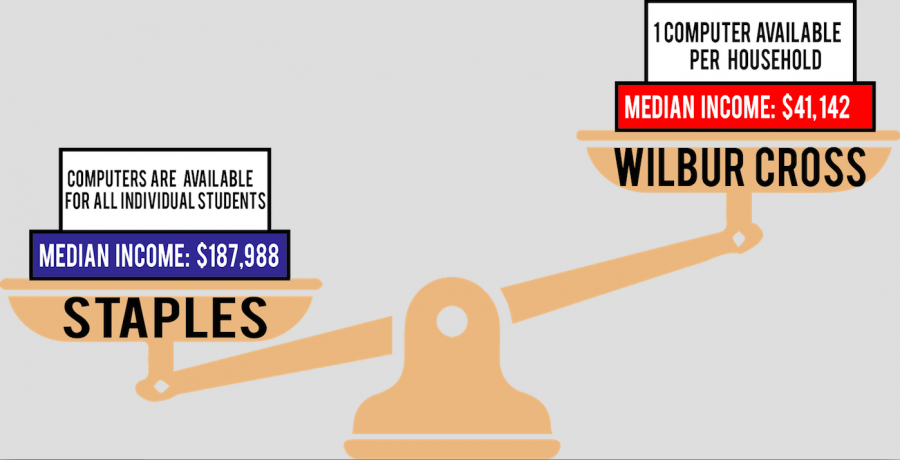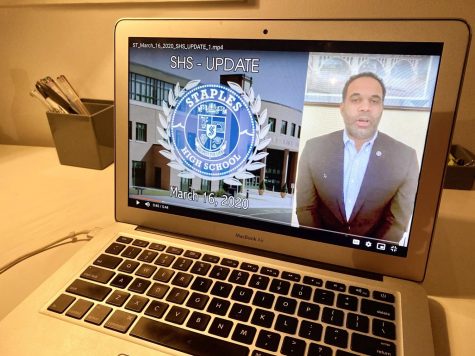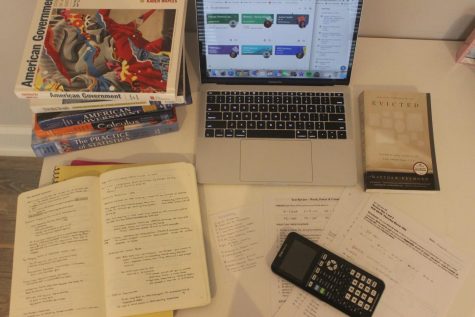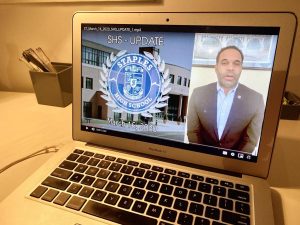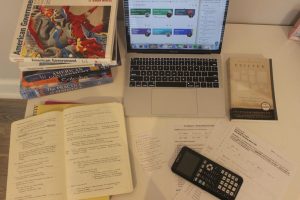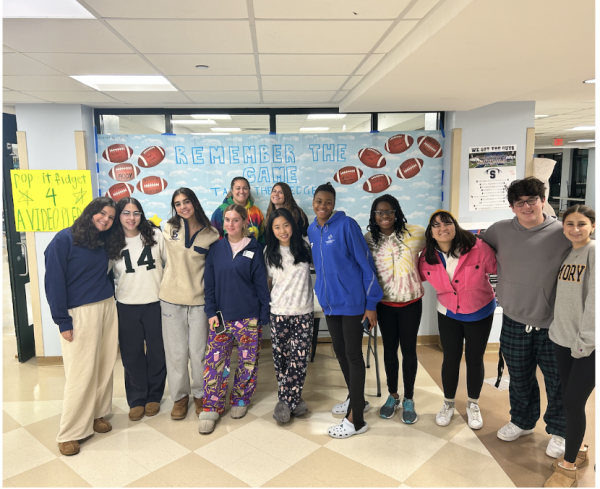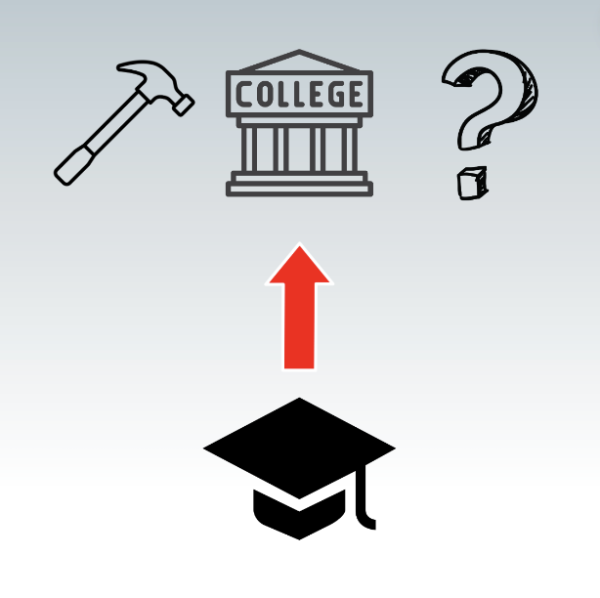School closures highlight economic inequality across Connecticut
Connecticut Governor Ned Lamont issued an executive order closing public schools on March 15, beginning an unprecedented time of completely online schooling. While this served as a dramatic change for all students, some school districts faced a particularly difficult transition due to their funding and resources.
Connecticut has the third highest degree of economic inequality in the country according to the Economic Policy Institute, a fact which is directly reflected in the funding for its public schools. This inequality has always presented challenges for students, yet it has been further exacerbated by the transition to online learning.
According to the U.S. Census Bureau, New Haven has almost 50,000 households, 11,500 of which do not have access to a broadband internet subscription. Dr. Iline Tracey, superintendent of New Haven public schools, sent a letter to families noting that students will not be held accountable for not being able to access learning.
“Our district has always had inequities with students not having enough resources at home,” Andrea Coronel, a student of Wilbur Cross High School in New Haven, said, “and now with the library closed it has caused the gap to widen.”
Yet, here at Staples, located in Westport where the median income is $181,360 according to Data USA, adapting to online learning was fairly easy.
“At Staples, I think we’re really lucky to generally not have to worry about technology limitations when it comes to distance learning,” Lucy Belknap ’21 said. “Almost everyone has access to their own device, and if they don’t, the school can provide one.” At Staples, I think we’re really lucky to generally not have to worry about technology limitations when it comes to distance learning — Lucy Belknap ’21
Granting access to technology was not that easy for New Haven Public Schools. Wilbur Cross High School started distributing Chromebooks, but was only able to give out one per family.
“This still hasn’t resolved the issue completely,” Coronel said. “When a family has more than one kid in school and they have to share one Chromebooks [it] gets really complicated when two different teachers are both holding Google Hangout meetings at the same time.”
In addition to technology access, Fairfield County has been able to continue giving other types of services to their members while out of school that other districts haven’t. Trumbull High School has given immense support to students through the guidance department.
“The guidance department has worked hard to support students,” Katie DeRose, a Trumbull High School student, said. “They have let students know that they can still reach out to their guidance counselors for help and have continued many guidance-related activities that would have occurred in the remainder of the school year, […] [such as] help with their resumes and job [and] college applications.”
Another challenge of school closures in some districts revolves around parents who now must help their children with school work. Staples student Belknap volunteers at an immigrant center in Stamford and has seen the effects of closed schools for children whose parents don’t speak English at home.
“We’ve been offering online tutoring for these kids, and [reading and writing] have only worsened without constant exposure to English in school,” Belknap said. “There are many other situations like this where it’s hard for parents to provide the same resources for their kids at home that they are used to getting at school, which I’ve learned has become a huge issue due to the pandemic.”
However, while COVID-19 school closures have shown the many inequalities of Connecticut schools, it has also shown commonalities in student experiences across the state. All students have lost the face-to-face interactions with their peers and teachers, but many have also seen their schools come together.
“With the school closing, a lot of the valuable interactions that we had in class have disappeared,” DeRose said. “On the brighter side, I think this experience has brought the school community together. […] The district has started to further recognize student achievements that they otherwise would not have acknowledged. Additionally, students have grown to be more supportive of one another, whether it is posting daily jokes for their class in Google Classroom or recognizing seniors with their post-high school plans and senior quotes on Instagram.”
Wilbur Cross in New Haven also shared this mix of negative and positive outcomes from online learning.
“As a senior, I have had my prom, graduation and small other senior activities taken away,” Coronel said. “This brought me down in the beginning, thinking how I will never be able to let my friends sign my yearbook or my family see me walk across the [stage.] Nevertheless, I feel COVID-19 brought the class of 2020 closer and able to share a sad experience that, who knows, maybe one day we will laugh about.”












































